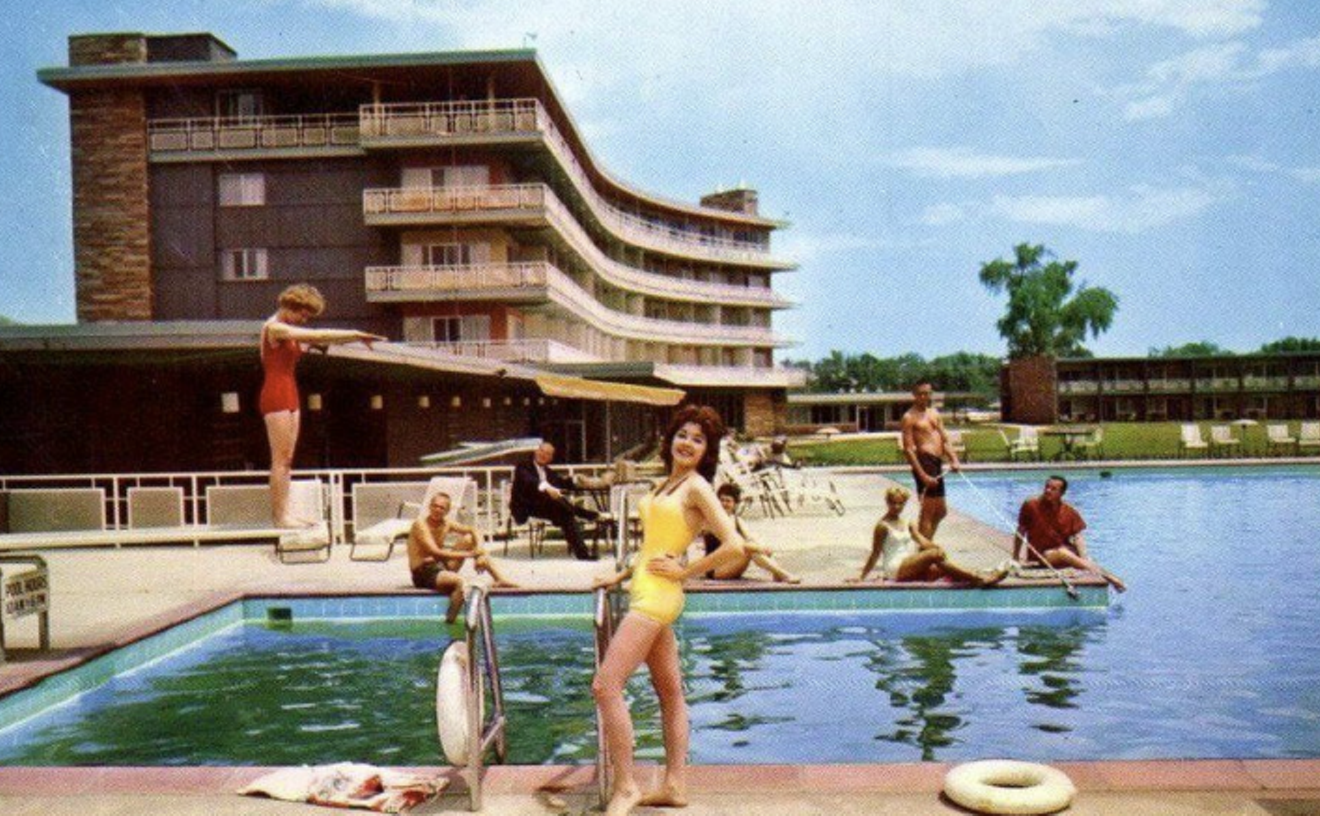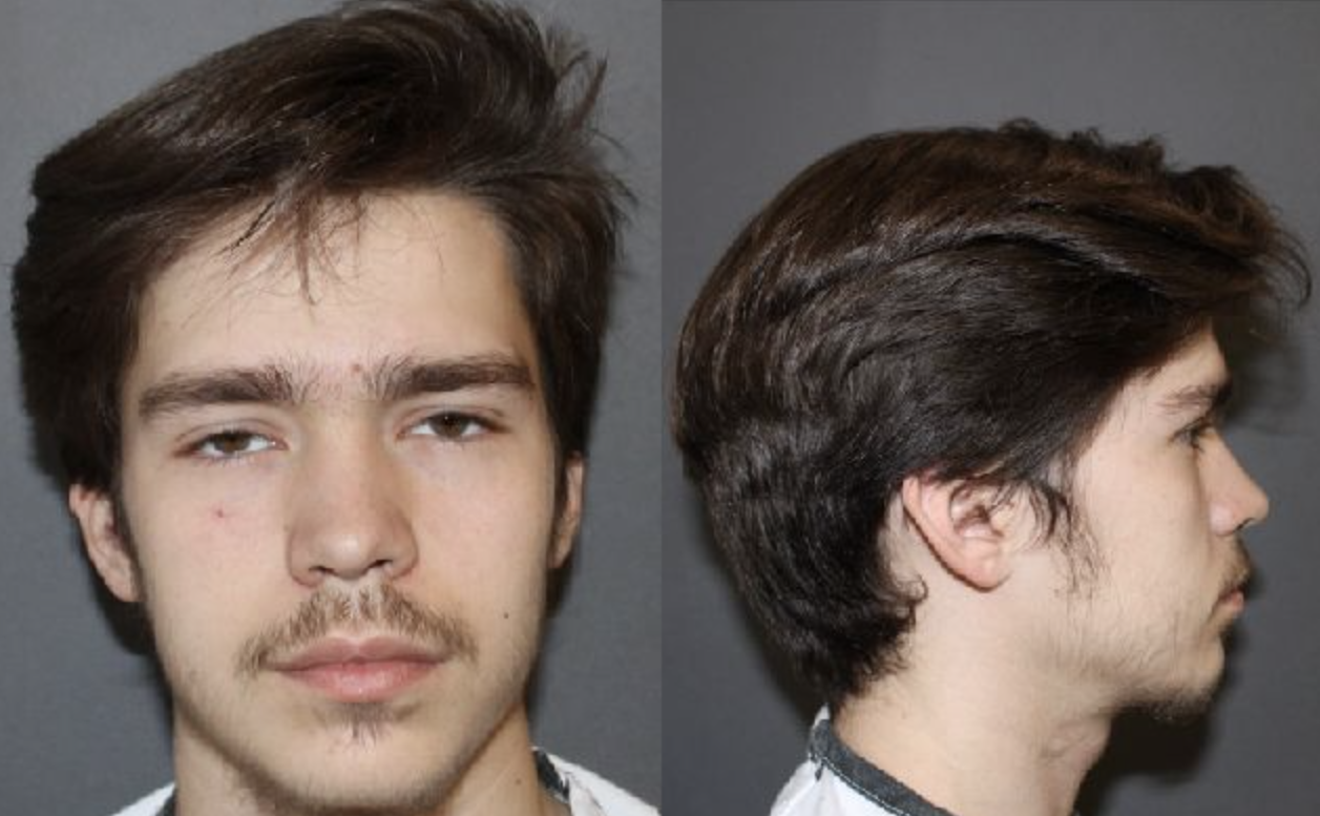On October 17, Woodard called Garcia into his office to discuss Mint procedures. Garcia says she was reluctant to leave her post in the die vault, a secure area that stores the dies used to stamp designs on coins, but Woodard insisted that she meet him right away.
Conflict between Woodard and Garcia was nothing new. "He has had a problem with me for years," she says. But this time, she adds, things went further than before.
Soon after she entered the office, the two started arguing. Garcia claimed that Woodard was disciplining her, not simply advising her about procedure, so she said she wanted to call the president of her union, the American Federation of Government Employees Local 695. (Under their contracts, union members have a right to representation during disciplinary actions.) Woodard became irate, she says, adding, "I could feel his breath and his spit...and he was even yelling in my ear." And when she walked to the other end of the office and picked up a phone, she says, Woodard launched himself at her, hitting her in the chest and causing her to spin around and stumble backward. Garcia yelled at him to get his hands off her, but Woodard just grabbed the phone and hung it up.
Hysterical, Garcia ran back to the die vault and called her union president and the U.S. Mint Police, federal officers who report directly to the Department of the Treasury. The Mint police came and took statements from both Garcia and Woodard. That evening, according to hospital records, Garcia went to Presbyterian/St. Luke's Medical Center, where she was diagnosed with a "chest wall contusion." She has not returned to work since the assault, she says, because she hasn't been released from her doctor's care.
Woodard declined to comment for this story.
Two days later, Garcia walked across the street from the Mint to Denver's protective-orders court and asked a Denver County Court judge for a restraining order against Woodard. "I feel I am unsafe in my workplace due to harassment, assault, intimidation, power control and plenty more," she wrote. "I cannot eat or sleep at night, and constantly worry about coming into work for my own safety."
The judge complied, issuing a temporary restraining order that prohibited Woodard from having any contact with Garcia, inside or outside the Mint. But because the Denver Mint, which cranks out half of the U.S. coins in circulation and stores gold and silver bullion, is a highly secure federal building with its own police force, Denver Sheriff's Department deputies, who routinely serve restraining orders, weren't allowed in when they tried to deliver the order to Woodard. As a result, Garcia hired an attorney who arranged for a private company to serve Woodard.
The Mint police passed this information along to the U.S. Attorney's Office in Washington, D.C., which decided to defend Woodard rather than prosecute him for the alleged assault.
"Somebody in Washington made the determination that we should be involved in the case because it was in our interest to make sure that the Mint continued to function," explains Jeff Dorschner, spokesman for the U.S. Attorney's Colorado office. Also, says Dorschner, it is standard procedure for the U.S. Attorney's Office to represent federal employees involved in legal actions that arise while they are acting in a professional capacity.
In addition, he says, the federal government has jurisdiction over any property it has acquired from a state and over any building in which federal employees work.
On November 29, Assistant U.S. Attorney Michael Theis filed a motion claiming that because Denver had ceded the Mint property to the federal government in 1896, the Mint is an "exclusive federal enclave," and therefore outside the jurisdiction of the Denver courts. In other words, the restraining order was no good inside the building.
"The effect of exercising jurisdiction over this action and granting the injunctive relief would directly interfere with federal sovereignty by impeding the exercise of federal jurisdiction over employment matters in a federal workplace," Theis wrote. "Indeed, the Temporary Restraining Order has already had a harmful effect on defendant's ability to work and supervise his employees at the Mint. Ms. Garcia has endeavored to make it impossible for Mr. Woodard to move about the workplace and conduct his work duties."
To bolster his claims, Theis cited three previous cases in which Colorado courts tried to sort out what the state can and cannot do concerning federal enclaves.
In two cases heard in the 1970s, the Colorado Supreme Court tried to determine whether Denver could levy occupational taxes on people who work in federal enclaves. In one case, employees at the Air Force Finance Center refused to pay the tax. In the second case, employees at two Denver post offices argued that they shouldn't have to pay the tax either. In both decisions, the court affirmed that states have no jurisdiction over federal enclaves.
A more recent case was decided by the Colorado Court of Appeals in 1999. In it, the State Board of Medical Examiners had revoked the license of a Fort Carson military-base doctor who, while he was working in the emergency room at Evans Army Community Hospital, failed to properly clean a patient's wound; the patient later died of an infection. The doctor appealed the revocation, saying the state board didn't have jurisdiction to discipline him for something that happened at Fort Carson, a federal enclave. The court affirmed once again that the federal government has exclusive jurisdiction over federal enclaves, but it held that the Board of Medical Examiners can indeed punish physicians for acts that occur outside of the state, and that a federal enclave is considered to be outside the state.
Theis also argued that Garcia, if she wanted to pursue her claim, should file an employment-discrimination case, file a claim against the U.S. government, or use the remedies provided by her union's collective-bargaining agreement. But he also refuted her allegations: "In his statement, Mr. Woodard, while agreeing that he hung up the phone that Ms. Garcia was attempting to use, denied shoving, touching or initiating any physical contact with Ms. Garcia," he wrote.
Garcia's attorney, Howard Fishkin, questioned the U.S. Attorney's handling of Garcia's claims, however. "In any other workplace situation, the Defendant's conduct would not be tolerated, and he would be discharged from employment," Fishkin wrote. "In this situation, however, not only is the conduct tolerated, but the Department of Justice finds that it did not occur and then provides him with personal representation in this Court."
Fishkin also accused the U.S. Attorney's Office of overlooking provisions intended to protect women from violence. "It is difficult to imagine that in the year 2000, with the recognition that has been given and strides that have been taken against assaultive behavior against women, not only in the workplace but in the home, that [state restraining-order statutes] would not provide a remedy to the Plaintiff in this case," he wrote. "Ironically, the federal government has enacted the Federal Violence Against Women Act (VAWA), and correlative federal legislation requires that a valid protective order issued in a state be given full faith and credit in courts of other states."
The attorney then dissected the densely worded, 104-year-old statute in which Denver ceded the Mint property to the feds, scrutinizing every comma and conjunction. He argued that if read correctly, the statute provides that the state does have jurisdiction over civil actions, including the enforcement of a civil restraining order. If, instead, the statute is interpreted to mean that the state has no jurisdiction over the Mint, the law should be declared unconstitutional, because it mandates different treatment for federal employees, which violates their right of equal protection.
The judge agreed with Theis, however, and changed the temporary restraining order on December 5 so that it no longer restricts Woodard's contact with Garcia inside the Mint but still prohibits contact with her anywhere else.
On February 12, the judge is scheduled to decide whether the restraining order should be permanent and if so, whether it is within his jurisdiction to include the Mint.
Garcia says she won't return to work unless the restraining order extends inside the building. "These supervisors are protected more than we are," she says. "I had to seek counsel because [the government] appointed him a lawyer to protect him...That's taxpayer money -- part of my money, your money, everybody's money!
"Now they're trying to say I have no rights because it's on federal ground. It's like, what, it's sacred ground?" she asks. "I don't think they understand women's rights and how it is when someone hits you like that and hurts you."










